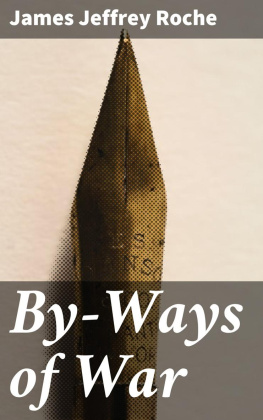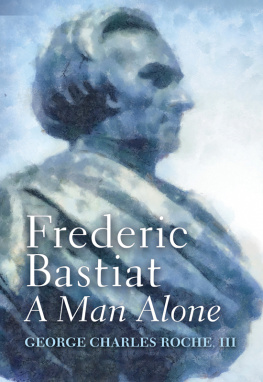James Jeffrey Roche - By-Ways of War: The Story of the Filibusters
Here you can read online James Jeffrey Roche - By-Ways of War: The Story of the Filibusters full text of the book (entire story) in english for free. Download pdf and epub, get meaning, cover and reviews about this ebook. year: 2014, publisher: Duke Classics, genre: History. Description of the work, (preface) as well as reviews are available. Best literature library LitArk.com created for fans of good reading and offers a wide selection of genres:
Romance novel
Science fiction
Adventure
Detective
Science
History
Home and family
Prose
Art
Politics
Computer
Non-fiction
Religion
Business
Children
Humor
Choose a favorite category and find really read worthwhile books. Enjoy immersion in the world of imagination, feel the emotions of the characters or learn something new for yourself, make an fascinating discovery.
- Book:By-Ways of War: The Story of the Filibusters
- Author:
- Publisher:Duke Classics
- Genre:
- Year:2014
- Rating:3 / 5
- Favourites:Add to favourites
- Your mark:
- 60
- 1
- 2
- 3
- 4
- 5
By-Ways of War: The Story of the Filibusters: summary, description and annotation
We offer to read an annotation, description, summary or preface (depends on what the author of the book "By-Ways of War: The Story of the Filibusters" wrote himself). If you haven't found the necessary information about the book — write in the comments, we will try to find it.
Today, the term filibuster refers to a tactic used by loquacious lawmakers who seek to prevent a vote by delivering marathon-length speeches. But in the past, the term had a different meaningit referred to freelance mercenaries who traveled to foreign countries with the aim of sparking a war or revolution. James Jeffrey Roche presents a fascinating history of the practice in By-Ways of War.
By-Ways of War: The Story of the Filibusters — read online for free the complete book (whole text) full work
Below is the text of the book, divided by pages. System saving the place of the last page read, allows you to conveniently read the book "By-Ways of War: The Story of the Filibusters" online for free, without having to search again every time where you left off. Put a bookmark, and you can go to the page where you finished reading at any time.
Font size:
Interval:
Bookmark:

The Story of the Filibusters
First published in 1901
ISBN 978-1-62013-862-5
Duke Classics
2014 Duke Classics and its licensors. All rights reserved.
While every effort has been used to ensure the accuracy and reliability of the information contained in this edition, Duke Classics does not assume liability or responsibility for any errors or omissions in this book. Duke Classics does not accept responsibility for loss suffered as a result of reliance upon the accuracy or currency of information contained in this book.
"So much the leaded dice of war
Do make or mar of character."
JOAQUIN MILLER.
The rise and fall of the American Filibusters belong to the historyof the Nineteenth Century. From time to time their deeds have beenrecounted by actors in the stirring scenes, by contemporary observers,and, incidentally, by travellers in Spanish America who lingered for amoment over the romantic legend of the modern Vikings.
Among the works consulted in the preparation of this volume are: "AHistory of Miranda's Attempt to Effect a Revolution in South America,"by one of his officers; Yokum's "History of Texas"; Green's narrativeof the Mier Expedition, and Kendall's of that to Santa Fe; Henri de laMadelaine's "Life of Raoussett-Boulbon"; Wells' account of Walker'sexpeditions to Sonora and Nicaragua; Walker's "History of the War inNicaragua"; and the several works relating to the latter country ofSquier, Scherzer, Stout, Captain Pim, Chevalier Belly, M. Nicaisse,and many other travellers.
From such sources, as well as from the periodicals and officialdocuments of the day, and from the lips or pens of living comrades inthe more recent of those tragedies, have been gathered the facts toldin the following pages. It has been no easy task to sift the grains oftruth from the mountain of myth, prejudice, and fiction under whichthe actual deeds of the Filibusters long lay buried.
Forty years ago it would have been well-nigh impossible, in theheated atmosphere of the slavery conflict, to view such a subject withphilosophical impartiality. To-day we may study the Filibusterdispassionately, for he belongs to an extinct species. The speculatorhas supplanted him without perceptibly improving the morality of theworld. Even the word "filibuster," transformed to a verb, is degradedto the base uses of politics. It is time to write the history and theepitaph of the brave, lawless, generous anomaly on civilization.
Boston, November, 1900.
J. J. R.
The difference between a filibuster and a freebooter is one of endsrather than of means. Some authorities say that the words have acommon etymology; but others, including Charlevoix, maintain that thefilibuster derived his name from his original occupation, that of acruiser in a "flibote," or "Vly-boat," first used on the river Vly, inHolland. Yet another writer says that the name was first given to thegallant followers of Dominique de Gourgues, who sailed from Finisterre,or Finibuster, in France, on the famous expedition against Fort Carolinein 1567.
The name, whatever its origin, was long current in the Spanish as"filibustero" before it became adopted into the English. So adopted,it has been used to describe a type of adventurer who occupied acurious place in American history during the decade from 1850 to 1860.
The citizen or subject of any country, who makes war upon a state withwhich his own is at peace, with intent to overrun and occupy it, notmerely for the piratical ends of rapine and plunder, is a filibusterin the true sense of the term. Such act of war is, by the law ofnations, a crime against both countries. Its morality, before themeaner court of popular judgment, will rest upon the measure of itssuccess alone. So judged, as all invaders are judged at last, the boldadventurer draws but few prizes in the lottery of fame. Cortez andHouston are among the few successful filibusters of modern times.
In the shadowy chronicles of the Norsemen we find the first trace ofthat adventurous spirit which, during twelve centuries, gave thedominion of the ocean to the seafaring people of Northern Europe. Thebold Vikings who, without chart or compass, sailed over unknown anddangerous seas, crossed the Atlantic and swept the Mediterranean, werethe worthy fathers of the Drakes and Ansons of later years. Historybespeaks them cruel, rapacious, daring; pirates when, as Wheaton says,the occupation of a pirate was considered not only lawful, buthonourable. But they were not wholly destructive. Borrowing a lessonin natural history from their own lemming, they solved the troublesomeproblem, how to get rid of a surplus population, by sending thesuperfluous members forth to seek a new field. The lemming eats hisway to the sea, in which he finds his grave; but his human imitatormore wisely found there a pathway to fortune. They went forth mainlyto conquer, incidentally to colonize and settle. Among themselves theywere primitive republicans, though harsh tyrants to their vanquishedfoes. "Who is your king or leader?" asked the herald of King Charlesthe Simple, before the decisive battle on the banks of the Eure inA.D. 898. "We have no king, no chief, no master; but 'Rolf, theWalker,' leads us in war and on the day of battle," was the proudanswer of Rolf's comrades and peers. That this was no idle boast,Rolf's own descendant, King John of England, learned to his sorrowwhen the sons of the sturdy Norse filibusters met him face to face atRunnymede. The Magna Charta is the written code of that fiercedemocracy, dreaded alike by its serfs and its kings. The Vikings standalone as a race of warriors whose hardihood overcame even their nativesuperstition, in leading them to defy the gods themselves. They weresceptics, because they knew not fear. Love was as yet an unknown powerin their religion.
The Norsemen were suppressed only by absorption. Owing no fealty totheir native land, they took possession of the conquered countries, inwhich they proved to be the strongest barrier against furtheraggressions from the dreaded North. But before this degree of safetywas gained, all Europe had felt the scourge of the terrible Vikings,who had burned or put in vassalage London, Cologne, Treves, Paris,Tours, and Marseilles; carried their victorious arms to Portugal,Spain, Sicily, and Constantinople; and given dynasties of Norse bloodto England, Russia, and France. Rolf married a natural daughter ofKing Charles, whence came the Norman dukes and the royal line ofEngland. In brief, the Vikings held the western world at their mercy,overturning thrones, founding kingdoms, stabling their horses in thepalaces of princes, and upholding on their hireling spears the crownof the fallen Csars.
With the rise of the powerful maritime nations of Europe filibusterismslumbered for several centuries. The immortal expedition of Cortezbeing, in so far as it lacked the sanction of his king, wholly that ofa filibuster, needs but passing mention here. Its success has liftedit into the realms of history and made it a household story.Filibusterism was to awake on a new field and lead the van in the longwarfare which, in two hemispheres and during three centuries, hasfollowed the meeting of Northman and Southron. England, and alsoFrance, looked with jealous eyes upon the grasping policy of Spain inthe New World. The fortune of discovery had given to the two formerthe apparently barren lots of Canada and the British colonies. Spainhad drawn the rich prize of El Dorado. Not content with the spoils ofMexico and Peru, she grudged to the hardy hunters of the West Indiestheir petty trade with her colonies. She claimed the Mississippi. Theepitaph of Columbus was read as a veritable bequest by Spanish greed.But avarice over-reached itself. The persecutions heaped upon the"boucaniers" of the West Indies aroused a spirit of opposition, whichsuccess fanned into aggressive fires, and which the governments ofEngland and France did nothing to extinguish. The cumbrous galleonwith its golden freight was no match for the swift Vly-boat, manned byreckless adventurers in whom the appetite for gold was whetted by thememory of countless wrongs.
Font size:
Interval:
Bookmark:
Similar books «By-Ways of War: The Story of the Filibusters»
Look at similar books to By-Ways of War: The Story of the Filibusters. We have selected literature similar in name and meaning in the hope of providing readers with more options to find new, interesting, not yet read works.
Discussion, reviews of the book By-Ways of War: The Story of the Filibusters and just readers' own opinions. Leave your comments, write what you think about the work, its meaning or the main characters. Specify what exactly you liked and what you didn't like, and why you think so.












